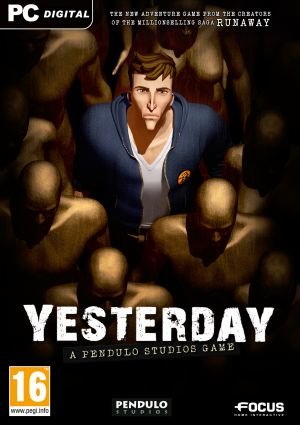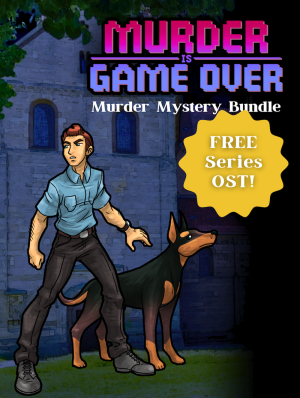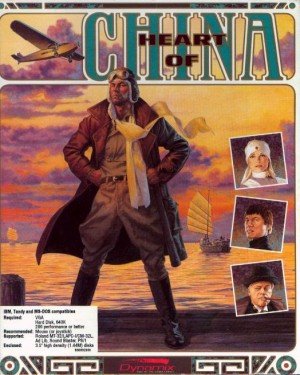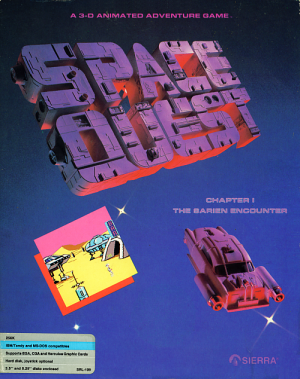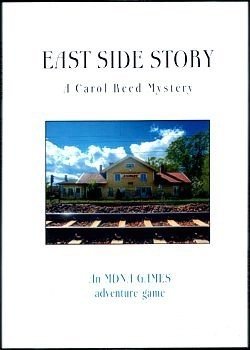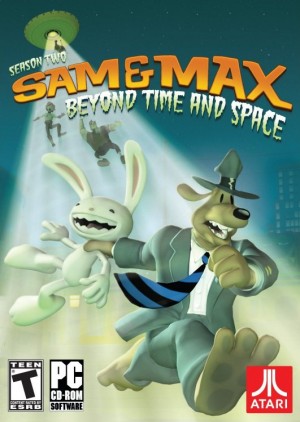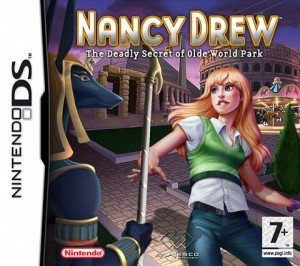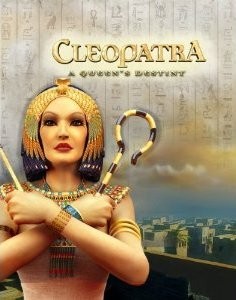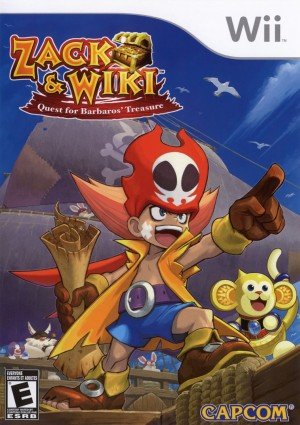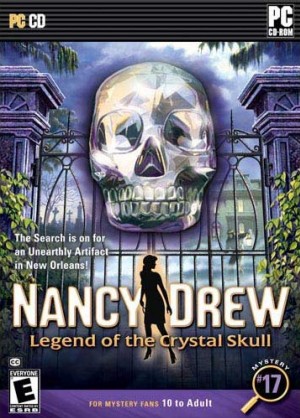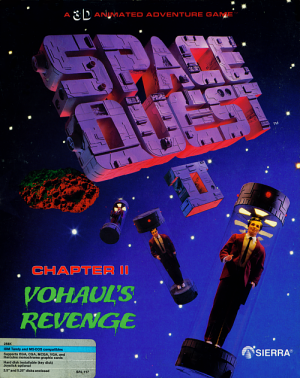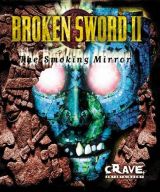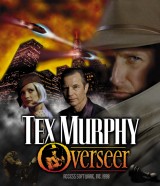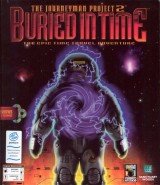Review for Yesterday
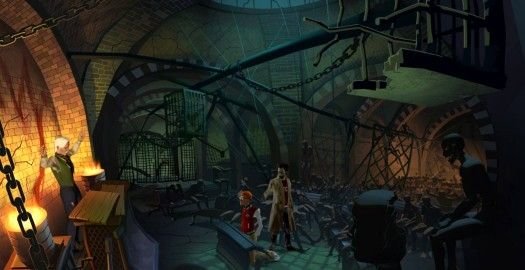
You think you know Pendulo Studios? Far from the quirky comedic styling of Runaway, imagine a backdrop of a dingy wall covered with Latin verses, photos of violent tortures, and disturbing graffiti about alchemy and Satanism juxtaposed by some chillingly cheerful whistling. Then a staccato buzzing of flies as the scene zooms out amidst jarring cuts of hideous faces to reveal a ritual circle beset with candles and drenched in blood. The sounds merge idly with the thumping of a terrified heart, until the cacophony is overwhelmed by a scream of agony, leaving you to imagine the worst. This macabre prelude into Yesterday makes it immediately obvious that you're beginning a trip into the gruesome machinations of depraved minds. Clearly this is Pendulo like we’ve never seen the Spanish studio before, though it has many of the other fine qualities we’ve come to expect. Fantastically illustrated and capably voiced, Yesterday hosts a mélange of easy but engaging and evenly-spaced inventory-based quests. While progress is very linear, the game is never perfunctory; the often-baffling but always-intriguing story spurs your curiosity by skipping across time and teasing out morsels of clues at regular intervals, yet holds back just enough at each twist to keep you guessing until the troubling, multi-outcome conclusion.
The story actually starts a year earlier, at the New York office of the French organisation Les Enfants De Don Quichotte (The Children of Don Quixote), whose priority is the welfare and rehabilitation of the homeless. Les Enfants is a real entity and the game is dedicated to them; the first chapter, set in a grim, abandoned subway station, forces you to reluctantly confront the profound risks which the homeless must undertake daily to find shelter or at least scattered moments of peace. A serial killer has been murdering the city's vagrants, and while the chief of Les Enfants is worried about the safety of her crew, she can ill-afford to suspend operations even briefly. And so we meet two of the three leads, the nerdy Henry White, a steadfast volunteer, and his loyal friend, the dim but devoted Cooper, as they continue their forays to help the homeless, but a nightmarish run-in with a raving fanatic at the station destroys their idealism and innocence forever. It doesn't, however, derail Henry's altruism; when he eventually takes over one of America's largest corporations after the death of his parents, he continues his philanthropic ways in helping the less privileged.
Henry has also been researching Satanic cults, whom he suspects are behind the murders based on the strange 'Y' carved into the palms of the victims, supposedly the insignia of a medieval religious order. He'd recruited an expert on the matter, John Yesterday, and sent him to Paris to investigate further, but John had inexplicably attempted suicide in his hotel room. When the game later introduces John as the third protagonist, he's an amnesiac with no inkling of his past. John returns to Paris to complete his investigation, which sets the dominoes tumbling as objects and events trigger flashbacks that reveal the truth about his near-death experience, and raise serious questions about his own complicated history.
From this point, we follow John as he tries to piece together lost secrets about both himself and his mentor, linking them far more intrinsically than their superficial professional association. John's investigation takes him from Paris back to New York, and eventually to a destroyed church in Scotland, the seat of the Satanic cult in the fifteenth century, and amidst the disorienting revelations and continued attempts on his life, he must also deal with a returning – and not entirely wholesome – sense of self, as well as feelings for the girl he was dating before he lost his memory.
Yesterday takes place across not only diverse locations but eras as well, jumping abruptly from one to another: one moment you may be powering down a generator in a warehouse; the next you’re trying to grow truth flowers at an isolated mountaintop retreat. Initially confounding, this disjointed narrative format grows slowly but surely on you, giving you glimpses of the protagonists' histories at various points – just enough to clue you into their evolution and motivations, yet keeping the ultimate facts out of reach, like the fragments of a dream you can't quite piece together. Despite a couple of inconsistencies of timelines, the dark and complicated tale efficiently blends centuries and continents, myths and truths, grim realities and manic delusions, and garnishes the potpourri with a hint of the supernatural.
No one is what they seem to be, but the worst dichotomies are reserved for Henry and John, both extreme paradoxes of virtue and villainy. Henry starts as a stereotypical nerd with thick glasses, braces, sleeveless sweater, and awkward social skills despite his influential background, but cleans up nicely as the subtly unhinged but suave owner of his familial conglomerate. Initially distraught John eventually reveals impressive martial arts skills as well as a soft romantic core, but his biggest contribution is the matter-of-fact way in which he goes about unraveling the mind-blowing case, which might have made a lesser man wish for amnesia.
Both are supported by reliable associates: Henry has longtime loyal buddy Sam Cooper, an orc-ish misfit in a letter jacket who's yet to get over the humiliation dished out to him by his nemesis, an obnoxious boy scout leader, while John has his spiritual guru, a blind hermit named Olhak Adirf (in a strangely backhanded compliment to the famed Mexican painter), who spews self-confessed pseudo-mystical crap in an exaggerated Indian accent and provides most of the sparse humour in this otherwise decidedly morbid game with his odd repartees. There's also Choke, an aged fanatic who presides over an army of mannequins and conducts inquisitions of people who stumble into his underground lair; and Albert, the affable but irrepressibly sleazy concierge of the Parisian hotel, who define two distinct dimensions – dangerous and ridiculous – of creepiness. John's girlfriend, feisty Victoria Beckham-lookalike French belle Pauline Petit, unfortunately has little to do barring her momentary turn as part of the insipid and half-baked romance, an ornamental addition that's possibly the weakest link of the story. At the other end of the spectrum is the powerful cameo of Boris, a stockbroker-turned-batty hobo whose cheerful chatter alternates with touching distress at having missed his son's birthday party the fateful day he was killed at the station.
Yesterday keeps its gameplay simple and well-oiled, though you may need a bit of practice with the peculiar mechanics of hotspot usage and inventory selection. You can create four separate games, but within each one your progress is saved automatically as checkpoints, all of which remain available to replay if you wish. Each chapter comprises four or five interlinked screens, with just as many hotspots in each, including non-essential elements. You play occasionally as Henry and Cooper, but mostly as John – who, as the namesake of the game, has the meatiest role. An interesting segment has Cooper using some items previously used by Henry to salvage a situation, and his brute strength allows him a whole different approach to the quests as opposed to brainiac Henry's intelligent solutions. A similar rationale is applied during the finale, which allows you to choose any of the three protagonists, and your choice decides the ultimate outcome out of three different scenarios. Apparently a fourth ending is possible, though I didn't encounter an obvious means of triggering it.
The obstacles are almost entirely inventory-based puzzles, with only one truly standalone teaser involving prediction of chess moves, which can be solved by process of elimination if you're not an avid chess player. The tasks are easy, especially in combination with the limited environments in each chapter, the few collectable objects, and severely linear progression. They may even seem predictable to experienced players, but this seems to be by design. Pendulo has clearly aimed for balanced and intuitive gameplay that propels the story forward instead of investing in overly complex puzzles to create artificial stumbling blocks. While this may disappoint some, many will surely enjoy the smooth flow of the reasonably engaging quests. If you do get stuck, a hint key gives fairly direct instructions on what to do next, but is judicious about not spoon-feeding you; if you take a hint, the button stays deactivated until you follow through with the correct solution. Hints aren't repeated, but sometimes a second hint is given in case the first is too subtle.
Along with shortcuts for checkpoints, hints, and hotspot highlights, the inventory is displayed at the bottom of the screen, and by the end of each chapter stores about a dozen items, including those not required anymore, removed only when chapters change. Collected objects can be viewed up-close by left-clicking, and can be dragged onto onscreen hotspots or other objects in the inventory via prolonged left-click-and-hold. This needlessly cumbersome toggling (right-clicking inventory does nothing) requires practice, and can lead to frustration if you rush through the activity. Objects have no descriptions other than their names, but there are no zany items and everything is used for generic purposes. While random item combinations are dismissed with a simple red no-go sign, reasonable but incorrect matches are refused with an explanation.
Interacting with onscreen elements has a new format as well: hotspots pop up in inset windows as areas instead of objects, such as a darkened corner or a cluttered tabletop, and may contain one to three collectable items. Each window has icons to look at and take/use an object, and clicking these typically provides unvoiced descriptions or anecdotes of unfortunate events written in speech bubbles. You can only take one item at a time, however, and the window closes automatically after a transaction, so you must reactivate each area until the game informs you there's nothing else to take. On the bright side, you conveniently don't have to manually close the windows when finished. Hotspots are usually not deactivated once exhausted (though there are a few exceptions), which is only a minor annoyance given the relative scarcity of interactive items. A shortcut key displays all hotspots in a scene, but very subtly, so this process may require two or three attempts to scan an entire screen. Fortunately, hotspots are easy to identify on their own, so this aid shouldn’t be needed often.
Conversations occur with two speakers framed in inset close-up windows, with dialogue options bulleted with boxes that are checked off when the topic is concluded. There aren't a multitude of chats, but within each, topics are added without notice based on quest progress, and available people must be spoken to repeatedly to avoid missing out on new information. Interestingly, during some conversations the protagonist changes, and you talk alternately on behalf of both. There's a fair bit of expositional text, necessitated mostly by John having forgotten everything, but also to explain the history which involves heavy topics like alchemy, the Spanish Inquisition, and medieval rituals.
The English script is well-translated, with short, crisp sentences free of errors except minor instances like mismatched dates. Written dialogues, which appear in mandatory speech bubbles, perfectly match the spoken lines. There's occasional profanity, which startles even with the grim nature of the subject matter, as the dialogue isn't otherwise offensive in words or tone. There isn't much humour in the game apart from John's interactions with his guru, plus an apparently endless banter with a Frenchman about how to identify a Frenchman. A toy figure of the Poet of Pain from The Next BIG Thing plays a bit part as an amusing Easter Egg, described with a self-deprecating reference as 'a video game that came and went almost unnoticed'.
Though the overall tenor is much more sinister and forbidding than their more lighthearted previous games, Pendulo's hallmark outstanding art and animation once again shine through in Yesterday. It might be simple to make an evening in Paris or a windswept, craggy mountaintop appear exotic, but it takes skill to create a sense of mystique in a destroyed subway station or a nondescript warehouse, or to convey utter devastation via the limited scope of an abandoned train compartment. The vibrant and detailed, typically whimsical hand-drawn backgrounds creatively use light and shadows to run the gamut of moods from the initial blood-splattered torture chamber to the freakishly cheerful Happy Dale mental hospital. Ambient animation is used sparingly, usually as flickering lights or glowing flames, though there are several small but remarkable touches like a bathroom steaming up. Character motion is excellent, with smooth and realistic actions and gestures, and lip syncing adequately matches the voiceovers. The protagonists walk if you click the ground around them, otherwise they 'zip' to the selected hotspot automatically, fading from their original location and reappearing momentarily in the intended area. Double-clicking exits instantly to the next screen.
Many visual flourishes, like when Cooper launches himself across a bottomless chasm, a conversation between John and Henry in the latter's high-rise office in the dusky light of a sunset, and John's expressions before he takes a particularly challenging leap of faith, are spectacular. The currently fashionable comic book-like panels are used for the cutscenes, and while most are action-driven and dramatic – often even outright horrifying, like the torture sequences – with little jerks, zoom in-and-outs, and clever panel placement, some are pretty to the point of poetic, such as the passage of seasons as John undergoes his martial arts training. The game doesn't shy away from a few cheap thrills, but to the designers’ credit, they’ve used these prudently at well-timed intervals to maximise impact, drawing you into a deceptive lull during the intervening investigative segments.
The voice acting is exceptional in character and tone, avoiding hammy performances that the acute idiosyncrasies of the characters might easily have incited, and many subtle emotions are conveyed with startling realism through a combination of expert intonation and animation. Henry's friendly chats have a slight but constant edge of something off, while broody John transforms his moods from affectionate to terrified to confounded with alacrity. Albert's salacious tone is perfect, and the hermit's thick Indian accent is as tongue-in-cheek as his comments. The sole disappointment is Pauline, who has a totally American accent despite being natively French, though her compatriots are suitably accented. The background music is inconsistent; while mostly pleasant and situation-specific, like the soothing flutes at the hermit's retreat, it sometimes annoys, such as an intense guitar riff that loops incessantly during the chess puzzle. During the first chapter, occasionally the music pauses awkwardly before resuming. Sound effects are extremely realistic, and combined with the selection of special noises like the swish of a katana and the dramatic crescendos of freeze-frames that capture key moments, these round off a generally terrific audio-visual experience.
After a harrowing start that culminates in a violent confrontation at the subway station, Yesterday proceeds at a deceptively idyllic pace once John is introduced and initiates his investigation into the rotten core of the mystery. Nuggets of crucial information about people and events are almost casually strewn about, and though you have the sensation of everything spiralling towards a vortex, it all remains tantalisingly out of reach, just like John's lost memories. The game jumps back and forth in time, laying out a jittery narrative which may initially feel confusing, but you’ll be rewarded for your patience as it spills out the gruesome story at its own pace, slowly but steadily laying bare the remarkable depravities and secrets of the characters, which eventually impact at a visceral level as they are related to human vices rather than less tangible concepts like alchemical inventions. At eight-odd hours, Yesterday isn't very lengthy, nor are its puzzles particularly challenging, but it balances all the crucial elements of a well-rounded game – story, characters, gameplay, production values, and actual conclusive conclusion(s) – to deliver a cohesive experience that will leave you unsettled but satisfied to the end.


